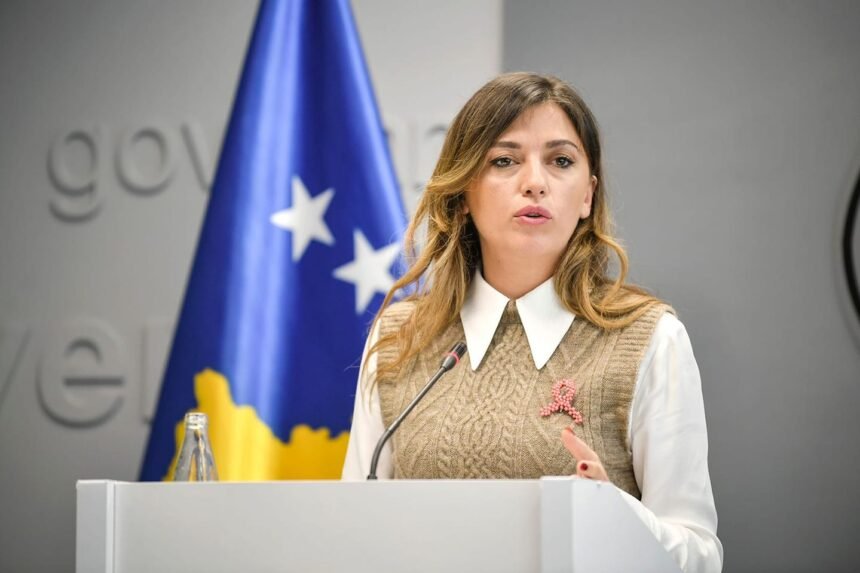The Acting Minister of Justice, Albulena Haxhiu, has reacted after the Special Court, in the case against former KLA leaders, accepted as material evidence documents submitted by Serbian state institutions.
Haxhiu stated that this development is deeply unacceptable, adding that accepting these materials as credible sources represents a grave distortion of justice and an open insult to war victims and the sacrifice for freedom, Reporteri.net writes.
“This shocking claim contradicts established practices of international criminal justice, according to which one of the most important criteria for assessing the admissibility of evidence is whether its source has an interest in the outcome of the process or shows other indicators of bias. The Court’s refusal to consider this criterion raises serious doubts about the impartiality of the judges in this case,” Haxhiu wrote.
According to Haxhiu, this is not only unjust but politically unacceptable.
“The use of documents produced by institutions of the Serbian regime is wrong and unacceptable. There can be no trust in documents produced by a criminal state apparatus, not to build justice but to manipulate the truth, blame the victim, and absolve the criminal.
Slobodan Milošević and his associates were tried at The Hague for war crimes. Accepting documents produced by their regime by a court acting in the name of the Republic of Kosovo strips this court of its constitutional legitimacy and turns it into an instrument of the old logic of denying the truth, equating the parties, and relativizing crimes. This is not only unjust but politically unacceptable,” Haxhiu’s post reads.
In the Specialist Chambers of Kosovo (SCK) in The Hague, a decision was made to accept several documents as evidence at the request of the Specialist Prosecutor’s Office (SPO) in the case against Hashim Thaçi, Kadri Veseli, Rexhep Selimi, and Jakup Krasniqi.
These documents were accepted on 29 May 2025, but the decision was made public on 25 July 2025.
The accepted documents are divided into three annexes, the last of which mainly includes documents allegedly obtained from the Serbian State Security Service, the Serbian Ministry of Internal Affairs, and other state structures.







